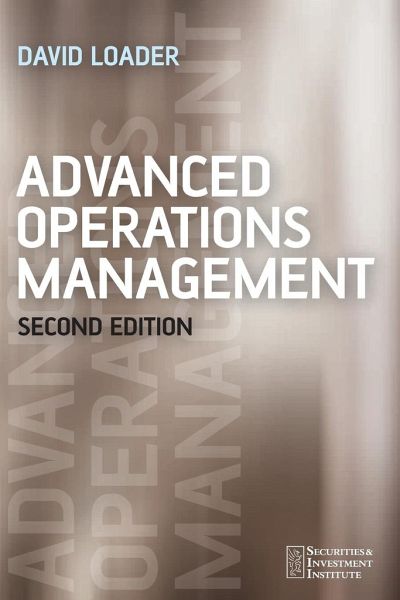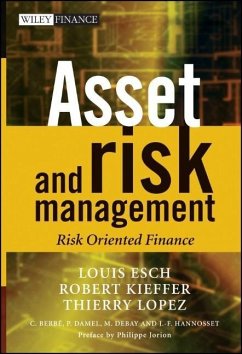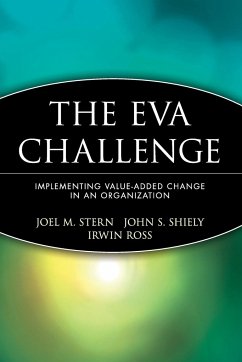Nicht lieferbar

Advanced Operations Management 2e
Versandkostenfrei!
Nicht lieferbar
Operations management is a vital component of any organisation in the financial markets. Without highly efficient operational capacity any business would be vulnerable to competition and would find the overall cost of its business unviable. It is also the case that operations teams and the functions they perform have both altered radically in the last five to ten years, illustrated by the active role in risk management that operations teams perform today. Traditionally a predominantly processing function, the changes to the structure of the industry have been significant and this has fundament...
Operations management is a vital component of any organisation in the financial markets. Without highly efficient operational capacity any business would be vulnerable to competition and would find the overall cost of its business unviable. It is also the case that operations teams and the functions they perform have both altered radically in the last five to ten years, illustrated by the active role in risk management that operations teams perform today. Traditionally a predominantly processing function, the changes to the structure of the industry have been significant and this has fundamentally altered the operations scope. Today its functions are processing but also risk control, client service, revenue or profit protection, and in some cases revenue generation.
In this book David Loader analyses the challenges of being a good supervisor and manager in an environment of constant change, variable workloads and pressure to deliver quality services cost effectively. He also discusses the challenges and most effective ways of managing risk, people and clients.
Key business issues facing the manager are covered, including:
_ Management philosophy
_ Treasury operations
_ Resource management
_ Technology
_ Procedures
_ Management information
_ Industry developments
In this book David Loader analyses the challenges of being a good supervisor and manager in an environment of constant change, variable workloads and pressure to deliver quality services cost effectively. He also discusses the challenges and most effective ways of managing risk, people and clients.
Key business issues facing the manager are covered, including:
_ Management philosophy
_ Treasury operations
_ Resource management
_ Technology
_ Procedures
_ Management information
_ Industry developments












